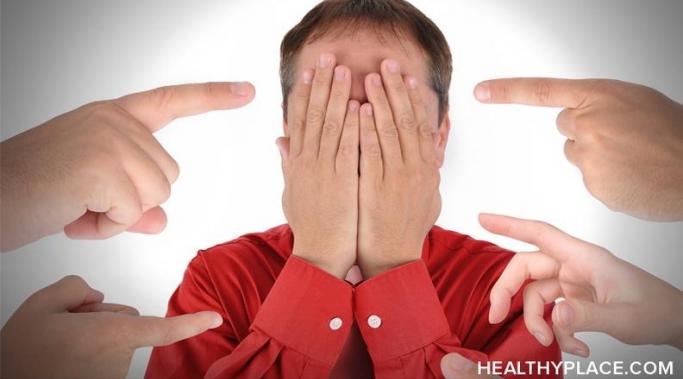Living with social anxiety and jumping to conclusions is like perpetually bouncing on a crowded trampoline: We must be watchful so we don't cause harm to others; we must avoid bumping into, and thus annoying, others; we know if we do it wrong we will surely ruin things for everyone; and we jump, jump to conclusions that we're being judged negatively. Social anxiety is exhausting (Social Phobia [Social Anxiety Disorder, SAD]). You don't have to remain stuck on the social anxiety trampoline, jumping to conclusions that you are somehow lesser than others. To stop jumping to conclusions and soothe social anxiety, to find some peace of mind, you must understand some of the effects of social anxiety.
SAD
I think that it is all too easy to laugh off anxiety and social media addiction as being part and parcel of an entitled generation who are hooked on the instant gratification of likes and comments. However, often the overuse or misuse of social media can reflect an ocean of unhappiness below the surface, breaking through in tiny drips. Anxiety and social media addiction are often related.
The words "anxiety," "criticism," and "self-doubt" can be synonyms, closely knit word triplets. Those mere words indicate that anxiety has many effects that tend to make life difficult. One particularly annoying effect of anxiety is sensitivity to criticism. Feeling crushed by criticism is an effect of anxiety, in general, and social anxiety, in particular, where the fear of being judged or of embarrassment can be immense. When anxiety and criticism are overpowering and lead to self-doubt, take heart. There are ways to conquer self-doubt. with with anxiety and criticism
A concept known as shoulding contributes greatly to social anxiety, and an entirely different concept called shoshin, or beginner's mind, contributes to the fading away of social anxiety. Social anxiety involves fear and worry that we're doing everything wrong; thus, we should be acting, feeling, thinking differently so people don't judge us negatively. Social anxiety prejudges so much of our lives. Before we even interact with someone, we often assume that we're inadequate, that we should be better. Practicing a beginner's mind (shoshin) can help stop the shoulding and reduce social anxiety.
While social anxiety is often thought to be something for the introverted among us—after all, they tend to be quiet and reserved—extroverts can experience social anxiety, too. In fact, introversion and extroversion are aspects of personality have no bearing on social anxiety. Social anxiety is an anxiety disorder, a mental health challenge that can be faced by anyone regardless of personality type. Therefore, extroverts can, indeed, experience social anxiety, too.
Anxiety brings with it a seemingly endless list of struggles and frustrations. A very common frustration and, for me, incredibly bothersome is anxiety’s loud, unrelenting hyperactivity. The feeling of hyperactivity is sometimes related to anxiety's racing thoughts.
Separation anxiety - the term often conjures an image of a young child in distress, loudly crying and fiercely clinging to a parent. While that’s not inaccurate, it is incomplete. Separation anxiety disorder affects not just children, but adults; in fact, it actually affects more adults than kids (7% vs. 4%). And while adults typically don’t cling to a loved one, loudly wailing, people experiencing adult separation anxiety disorder (ASAD) do feel a very similar degree of distress at the thought of separation from a loved one.
Perfectionism. It’s a common term in our society. We accuse people of (or, depending on one’s opinion of perfectionism, applaud people for) being perfectionists. Is perfectionism a desire to succeed and excel in one’s field? I’d call that ambition, but not necessarily perfectionism.
Perfectionism includes this desire for success, yes, but it goes beyond a desire to succeed. Perfectionism is not just a desire to do well; it’s a need to do the perfect job or be the perfect person to the detriment of your wellbeing. And perfectionism contributes greatly to anxiety.
It can be confusing and frustrating. All around you, you see others attending meetings, luncheons, study groups, parties, and activities. "Everyone" seems able and willing to do so. But for you, the mere thought is horrifying. So what's up? Are you "simply" shy? Is it something more than that? The answer is actually quite personal.
Excessive worry doesn't feel good. Both our bodies and our minds experience it in often painful ways. Anxiety frequently causes the mind to fret over a problem. When we do that, we’re thinking about the problem itself rather than a solution for it, and the problem can become quite a monster. Our thoughts have run away with it and now blow it out of proportion, turning metaphorical little mole hills into gigantic mountains. Problems seem like catastrophes.









